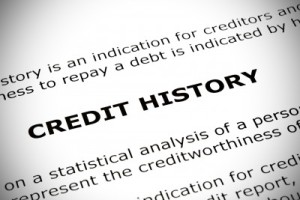Helpful Tips on Buying A Home With Bad Credit
The home buying process can be complex and time consuming. Having bad credit can make things even more challenging. However, poor credit doesn’t necessarily preclude you from owning a home. In our current economic climate loans  are subject to a good deal of scrutiny before approval and the options available to you aren’t great. Since the real estate bubble burst a few years ago, lending institutions have tended to be far more conservative, but it is still possible to buy a home with bad credit.
are subject to a good deal of scrutiny before approval and the options available to you aren’t great. Since the real estate bubble burst a few years ago, lending institutions have tended to be far more conservative, but it is still possible to buy a home with bad credit.
Most real estate and personal finance professionals will tell you that if you have sub-par credit, the best thing you can do is simply put off buying a house for a few years and spend that time improving your credit score. This can save you a lot of money in the long run by enabling you to qualify for a low interest rate on your home loan. Before you decide to purchase a house, make sure to ask yourself if buying is really a good idea right now. Taking on a mortgage with bad credit will create an extra burden and could be the wrong financial move.
That said, if you have less than stellar credit and still want to buy a home, the very first thing you should do is get a copy of your FICO credit score. You need to know where you stand before you begin talking to lenders and the difference of a few points can be important, especially if you’re on the lower end of the scale. While reviewing your credit score, you might also spot errors. If you do, you can report them to the credit agency that issued the report in order to improve your score. After you’ve reviewed your credit score and decided that you’re going to get serious, there are several options available to you.
A route that many people go is to apply for Federal Housing Administration loan insurance. By assuming the risk if you default, the FHA helps people qualify for a loan and can greatly reduce the down payment, which can be as low as 3.5% of the purchase price. Many of the closing costs/fees can be rolled into the loan as well. In order to obtain FHA loan insurance you must show current financial responsibility, but past bankruptcies or loan defaults won’t necessarily disqualify you.
Other options people sometimes use are local government home buying programs and obtaining a co-signer on the loan. Your local housing and community development office will have information on local government programs, if they exist. Alternatively, you might be able to get a close family member to co-sign on your loan. They can help you get approved by assuming the financial risk if you default. Finally, you might be able to find a lender that will give you a shot, but be careful – you’re bound to pay a higher interest rate and commit to a much larger down payment. The interest rate on subprime loans can be exorbitant, so signing up for one might leave you worse off than you were before. Exercise extreme caution when looking for a subprime loan.
In conclusion, waiting it out a few years and improving your credit score is the most advisable route to go by most estimates. If you do want to buy with less than stellar credit you can look into FHA loan insurance or try to find someone to co-sign your loan, but be wary of obtaining a sub-prime mortgage. If you’d like to check out communities you’re interested in moving to, have a look at our MoveMap, which makes finding a new place to live a breeze!

